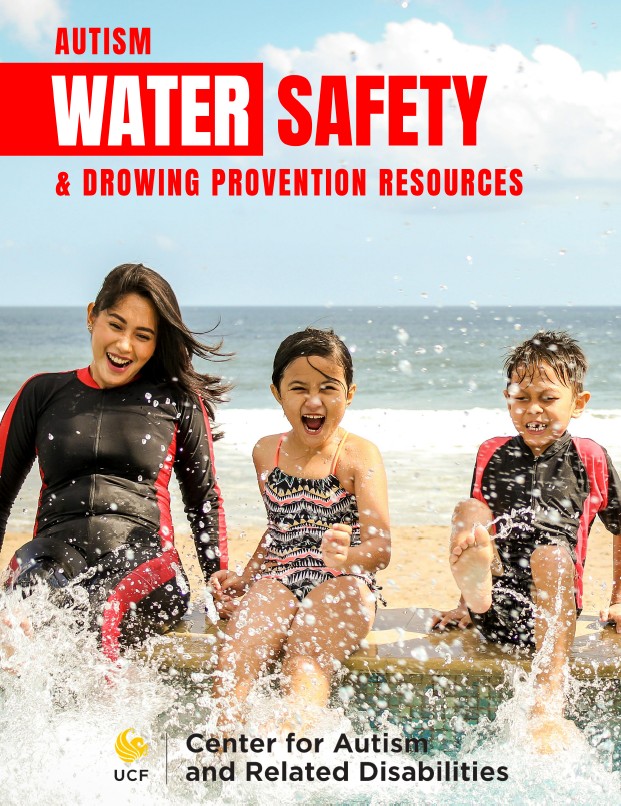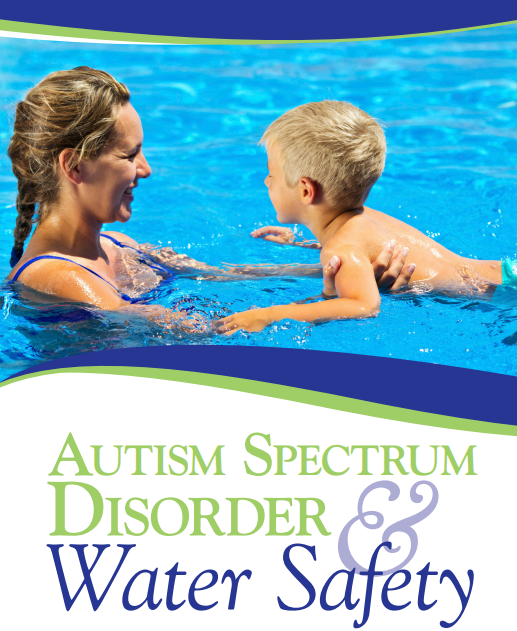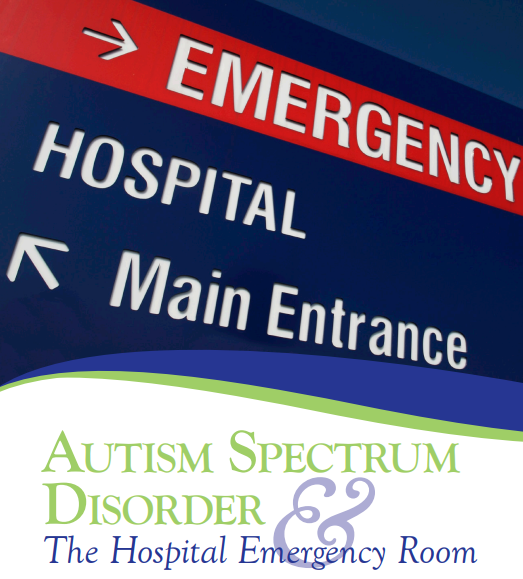Health and Safety
Do you need access to health and safety support? Start here.
Keeping children with ASD healthy and safe is a top concern for all parents of children with ASD. If you are looking for medical professionals, check out our resource guide in our Families section. For ideas and suggestions for common situations our families face, check out our prepared materials.
Health-Related Issues
Water Safety
Water safety instruction and swimming lessons are essential for all children in Florida. But for children with ASD, no matter what their age, it is even more important. Many children with ASD are attracted to water, whether a neighbor’s pool, a retention pond or the ocean–water is everywhere in Florida! Here are some startling facts about children with ASD and water:
- Florida has the highest number of drownings in the US.
- Individuals with ASD are 160 times more likely to experience nonfatal or fatal drowning than their neurotypical peers.
- Unlike their typically-developing peers, this risk persists with age.
- 32% of parents of individuals with ASD report that they have had a “close call” of drowning.
In Florida, individuals with ASD are provided with certain rights under the Wes Kleinert Fair Interview Act. If you are stopped and questioned by police, you can invoke your rights under this act. However, you must specifically state you have autism (not Asperger’s or ASD), and you wish to have a representative presents during any questioning as specified in Florida Law.
In addition to asking for interview support through the Wes Kleinert Act, we recommend carrying an ID supplement, which can be attached to your driver license or state ID card. We have these available for our registered families. This card helps explain unusual responses that we have seen in teens and adults with ASD when being confronted by law enforcement officers. You may also obtain a card and watch a video program on this at the DIG-it website.
It is important to follow officer directions–do not reach for your wallet or run if you are approached by an officer. Drop anything in your hands and follow directions, even if you were doing nothing wrong. The Be Safe program provides video examples of how to interact with police. This video can be viewed by contacting UCF CARD. We recommend practicing, and getting to know your local police officer and having them meet you/your child with ASD.
More about the Wes Kleinert Fair Interview Act (link)
ASD ID Supplement (contact your ASD specialist to be sent this card)
DIG https://www.justdigit.org/wallet-cards/
Be Safe Program (we have this DVD at UCF CARD (https://besafethemovie.com/)
Children with ASD often wander or “elope” from their homes, schools and community programs. There may be someplace they want to get to, or sometimes they are just overwhelmed and want to get away. If a child elopes, they face many risks. They often lack a sense of danger be at risk for abduction, injury, or accidental death. Drowning is the number one cause of death for children with ASD, and many are attracted to water. Review these resources to help to reduce wandering, and to speed efforts to find children before it is too late if they do elope.
What you should do if you discover your child is missing.
CALL 911. DO NOT start looking, call 911 immediately and tell the operator that your child with autism is missing. Say AUTISM, even if your child has a different label (ASD, Asperger’s, PDDNOS), since that is how the operators are trained to jump into a more intensive search mode.
What are some ways of preventing or monitoring wandering?
Here are some websites that offer services and devices that can help monitor wandering:
https://www.americanmedical-id.com/
https://www.squadhelp.com/name/buddytag?lp=d
Be proactive!
The following Counties that we serve have programs to help prevent tragedy if a child or adults has eloped or wandered from home.
Orange County: Orange County has a registry where important information can be entered about your child, and a sticker program for alerting first responders that a person with ASD resides at the home (or may be in the car). They also have a Project Lifesaver program.
Brevard County: Brevard County participates in Project Lifesaver.
Osceola County: Osceola County participates in Project Lifesaver.
Sumter County: lorem ipsum
Lake County: lorem ipsum
Seminole County: lorem ipsum
Check out ASERT’s Fire Safety Guide
Insurance Issues
More and more employers are including coverage for medical services needed by children with ASD in Florida. Florida Statute 641.31098 is known as the Steven A Geller Autism Coverage Act. It provides access to medical coverage for speech, physical and occupational therapy and applied behavior analysis services for children with parents employed by any company that is insured through the state of Florida.
Certain insurance plans are exempt from state mandates. Please contact your plan administrator to see if your plan includes state mandated autism spectrum disorder benefits.
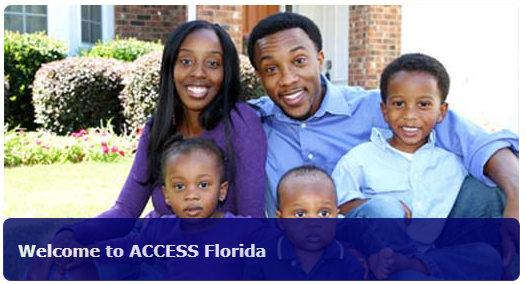
If you are in need of insurance coverage for medical services and have limited family income, you may qualify for Medicaid-based programs. To apply and check eligibility, apply through ACCESS FLORIDA
Hospital Smarts
Accidents happen! Learn how to prepare your loved one with ASD for a visit to the emergency room (or how to prepare the ER for your child)!
Need it in Spanish?
Dental visits can be scary for children with ASD. Our healthy friends at USF CARD have created this booklet to help prepare children with ASD for their experience in a typical dental check up and cleaning.
We recommend downloading or viewing it online with your children each day for a week before your child’s visit to the dentist. If you have the need for a personalized story due to a special circumstances, contact your UCF CARD ASD specialist and we can help you develop one for your situation.
The Grotto is a nonprofit group that supports children with special needs who cannot access dental care. The program helps cover the cost of treatment, including hospitalization and anesthesia, when needed for children with intellectual disability and related conditions. Contact the Ormazd chapter for more information if you believe your child may need such support.
Safety Issues
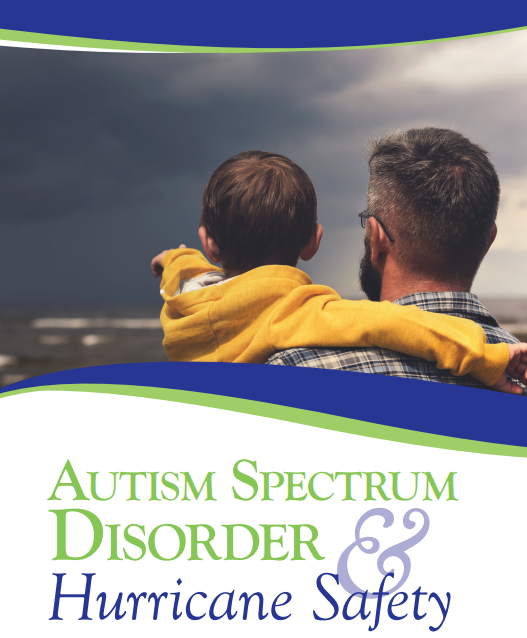
Hurricane Safety
Hurricanes are a fact of life in Florida. They can be scary and break comforting routines for days or weeks. Having an ASD Hurricane plan can help prepare the child with ASD for these changes. Special Needs shelters will open, but you will need to know what to bring to make your child’s (and your) stay as peaceful as possible. UCF CARD produces a Hurricane Social Story and posts to this website when a hurricane path will take a storm over Central Florida. Check back here if the forecast predicts we will be affected by a hurricane.
Police Interactions

UCF CARD provides over 20 training seminars each year for police and other first responders to help them understand and support individuals with ASD in a crisis or law enforcement situation. However, it is important for families to also teach children and adults with ASD how to stay out of trouble, and how to interact with police in any situation.
These resources are provided to help you educate your child or yourself on strategies to interact with police, in any kind of situation.
Social Narrative: I Can Respect a Police Officer
Social Narrative: Talking to the Police
Social Narrative: Interacting With Police Officers
Sociall Narrative: If the Police Stop Me
There are additional resources that are available to UCF CARD registered children and adults, as well as safety training days each year.

